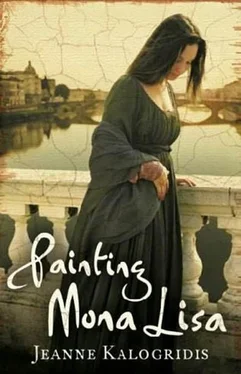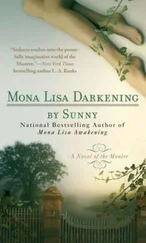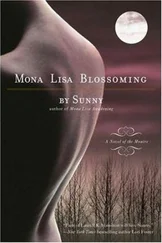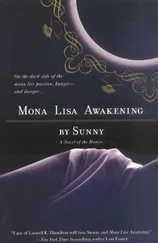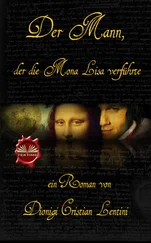1 ...7 8 9 11 12 13 ...115 Lorenzo frowned; he did not care for it, either. He had already greeted Francesco and Baroncelli when he had first entered the cathedral. His diplomatic instincts took hold of him, however; he inclined his head toward Raffaele Riario and said softly, “You see, Holiness? My brother has indeed come.”
Beside him, Cardinal Riario leaned forward, looked to his left, and caught sight of Giuliano. He gave Lorenzo an odd, tremulous grin, then with a snap of his head, forced his gaze back to the altar, where the priest was blessing the sacred Host.
The lad’s movement was so peculiar, so nervous, that Lorenzo felt a faint stirring of anxiety. Florence was always full of rumors, most of which he ignored; but Nori had recently reported that Lorenzo was in danger, that an attack was being planned against him. As usual, Nori could offer no specifics.
Ridiculous , Lorenzo had scoffed. There will always be whispers, but we are the Medici. The Pope himself might insult us, but even he dare not lift his hand against us .
Now, he felt a pang of doubt. Beneath the cover of his mantle, he fingered the hilt of his short sword, then gripped it tightly.
Only seconds later, a shout came from the direction Riario had glanced-a man’s voice, the words unintelligible, impassioned. Immediately after, the bells of Giotto’s campanile began to toll.
Lorenzo knew at once that Nori’s so-called rumors were fact.
The front two rows of men broke rank, and the scene became a clumsy dance of moving bodies. In the near distance, a woman screamed. Salviati disappeared; the young Cardinal flung himself at the altar and knelt, sobbing uncontrollably. Guglielmo de’ Pazzi, clearly terrified, began wringing his hands and wailing. “I am no traitor! I knew nothing of this! Nothing! Before God, Lorenzo, I am completely innocent!”
Lorenzo did not see the hand that reached from behind him and lightly settled on his left shoulder-but he felt it as though it were a lightning bolt. With grace and strength that came from years of swordsmanship, he pushed forward out of the unseen enemy’s grasp, drew his sword, and whirled about.
During the sudden movement, a keen blade grazed him just below the right ear; involuntarily, he gasped at the sensation of his tender skin parting, of warm liquid flowing down his neck onto his shoulder. But he stayed on his feet and held up his sword, ready to block further attacks.
Lorenzo faced two priests: one trembling behind a small shield, halfheartedly clutching a sword as he glanced at the crowd scrambling about him-most of them headed for the cathedral doors. But he was obliged to turn his attention to Lorenzo’s personal attendant, Marco, a muscular man who, though no expert with a sword, made up for it with brute strength and enthusiasm.
The second priest-wild-eyed and intent on Lorenzo-raised his weapon for a second attempt.
Lorenzo parried once, twice. Haggard, pale-skinned, unshaven, this priest had the fiery eyes, the open, contorted mouth of a madman. He also had the strength of one, and Lorenzo came close to buckling beneath his blows. Steel clashed against steel, ringing off the high ceilings of the now mostly deserted cathedral.
The two fighters locked blades, pressing hilt against hilt with a ferocity that caused Lorenzo’s hand to tremble. He stared into the eyes of his determined enemy, and drew in a breath at the emotion he saw there.
As the two stood with blades crossed, neither willing to give way, Lorenzo half shouted, “Why should you hate me so?”
He meant the question sincerely. He had always wished the best for Florence and her citizens. He did not understand the resentment others felt at the utterance of the name Medici.
“For God,” the priest said. His face was a mere hand’s breadth from his intended victim’s. Sweat ran down his pale forehead; his breath was hot upon Lorenzo’s cheek. His nose was long, narrow, aristocratic; he probably came from an old, respected family. “For the love of God!”
And he drew back his weapon so forcefully that Lorenzo staggered forward, perilously close to the blade.
E arlier, as he drew his long knife and hefted it overhead, Baroncelli remembered all the dozens of phrases he had rehearsed for this instant; none of them came to his lips, and what he finally shouted sounded ridiculous to his own ears.
“Here, traitor!”
The church bells had just begun clanging when Giuliano looked up. At the sight of the knife, his eyes widened with mild surprise.
Yielding at last to madness, Baroncelli did not hesitate. He brought the blade down.
Lorenzo stumbled, off balance, toward his opponent-and let go a roar of self-disgust at the realization that he would never be able to lift his sword in time to fend off the coming blow.
But before the wild-eyed priest could shed any more of Lorenzo’s blood, Francesco Nori stepped in front of his employer with his sword drawn. Other friends and supporters began to close in around the would-be assassins. Lorenzo became vaguely aware of the presence of Angelo Poliziano, of the aged and portly architect Michelozzo, of the family sculptor Verrocchio, of a business associate, Antonio Ridolfo, of the socialite Sigismondo della Stuffa. This crowd sealed him off from his attacker and began to press him toward the altar.
Lorenzo resisted. “Giuliano!” he cried. “Brother, where are you?”
“We will find and protect him. Now, go!” Nori ordered, gesturing with his chin toward the altar, where the priests, in their alarm, had dropped the full chalice, staining the altarcloth with wine.
Lorenzo hesitated.
“Go!” Nori shouted again. “They are headed here! Go past them, to the north sacristy!”
Lorenzo had no idea who they were, but he acted. Still clutching his sword, he hurdled over the low railing and leapt into the octagonal carved wooden structure that housed the choir. Cherubic boys shrieked as they scattered, their white robes flapping like the wings of startled birds.
Followed by his protectors, Lorenzo pushed his way through the flailing choir and staggered toward the great altar. The astringent smoke of frankincense mixed with the fragrance of spilled wine; two tall, heavy candelabra were ablaze. The priest and his assistants now encircled the blubbering Riario protectively. Lorenzo blinked at them. The afterimage from the lit tapers left him near blinded, and in an instant of dizziness, he put his free hand to his neck; it came away bloodied.
Yet he willed himself, for Giuliano’s sake, not to faint. He could not permit himself a moment’s weakness-not until his brother was safe.
At the same moment that Lorenzo ran north across the altar, Francesco de’ Pazzi and Bernardo Baroncelli, down in the sanctuary, were pushing their way south, clearly unaware that they were passing their intended target.
Lorenzo stopped in mid-stride to gape at them, causing collisions within his trailing entourage.
Baroncelli led the way, brandishing a long knife and shouting unintelligibly. Francesco was limping badly; his thigh was bloodied, his tunic spattered with crimson.
Lorenzo strained to see past those surrounding him, to look beyond the moving bodies to the place where his brother had been standing, but his view was obstructed.
“Giuliano!” he screamed, with all the strength he possessed, praying he would be heard above the pandemonium. “Giuliano…! Where are you? Brother, speak to me!”
The crowd closed around him. “It’s all right,” someone said, in a tone so dubious it failed to provoke the comfort it intended.
It was not all right that Giuliano should be missing. From the day of his father’s death, Lorenzo had cared for his brother with a love both fraternal and paternal. “Giuliano!” Lorenzo screamed again. “Giuliano…!”
Читать дальше
Конец ознакомительного отрывка
Купить книгу
